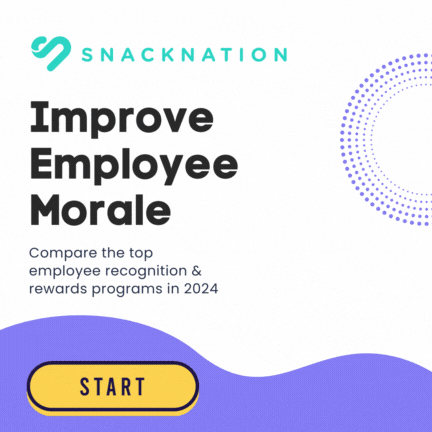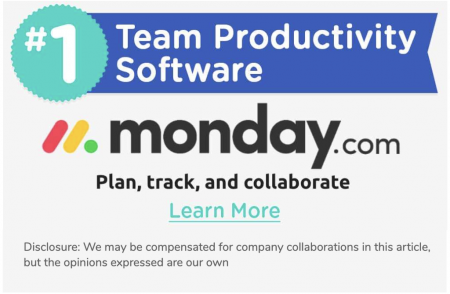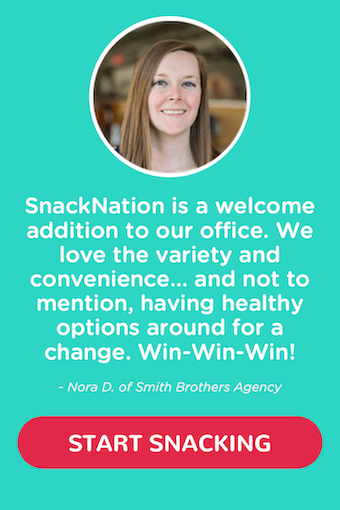Want to plan an office weight loss challenge that makes people feel empowered instead of defeated? We’ve got all the information you need to pull off a successful challenge, even if you’re starting from absolute scratch.
Weight Loss and Wellness
An office weight loss challenge, if planned with care and sensitivity, can be a vital part of your office’s wellness initiatives.
Office weight loss challenges can:
- Encourage teamwork
- Foster support, which can turn health, fitness, and weight-loss goals into results
- Promote deep and lasting bonds based in something outside of day-to-day office challenges
- Lead to health-care savings
Time out! Be sure to plan and communicate your office weight-loss challenge with care.
Achieving a healthy weight does not necessarily mean being as skinny as possible. Ideal weights depend on a number of complex individual factors—including genetics, lifestyle, and body composition.
Furthermore, weight provides one possible indicator of a person’s overall health. It happens to be an easy-to-use indicator, since most people have the ability to easily monitor fluctuations in their weight from day to day; factors such as blood pressure or body mass index, however, require more intense tools.
Remember to exercise sensitivity and discretion when communicating about an office weight loss challenge. Remind people to see a weight loss challenge as they would any other kind of fitness challenge: A way to start feeling healthier while bonding with co-workers.
Office Weight Loss Challenge Dos
- DO: Promote body positivity above all other goals.
- DO: Keep your challenge inclusive, open to people of all fitness levels and goals.
- DO: Foster camaraderie, not competition. (Promote the mentality that every lost pound is a team success.)
- DO: Encourage fitness activities employees can maintain in the long-run. (Extreme, “go-all out-and-then-crash” workouts may spur short-term weight loss, but most employees won’t see these workouts as long-term lifestyle changes.)
- DO: Encourage people to make healthy substitutes. (Have an apple instead of a cookie!)
- DO: Provide resources, even just links to healthy weight loss articles, to help employees lose weight in smart, sustainable ways.
- DO: Provide a standard disclaimer. You’ve probably seen this verbiage around the gym or before any streamed yoga video. These disclaimers simply outline some key points that protect program participants and your company. See what Jillian Michaels says in her disclaimer.
- DO: Create opportunities for extension. Program participants will love working out together, swapping healthy recipes, and talking about their goals. Consider creating long-term company initiatives, such as running groups, healthy cooking classes, or yoga clubs, that will help employees extend their health success long after the challenge ends.
- DO: Let everyone know of resources, including the National Eating Disorders Association hotline, they can use if they struggle (or have a history of struggling) with eating and weight issues.
Office Weight Loss Challenge Don’ts
- DON’T: Offer prizes for the person who loses the most weight, as those incentives may encourage unhealthy behaviors or unfriendly competition.
- DON’T: Force participants to share their progress/weight. This practice may be motivating to some and alienating to others.
- DON’T: Encourage people to conduct strict calorie counting that doesn’t factor in the nutritional quality of the calories.
- DON’T: Make the program mandatory.
Making an Office Weight Loss Challenge Happen
Planning and Execution
- Create an office-weight loss challenge proposal. Formal proposals help you wrap your head around making all your amazing ideas viable, and they also give you a clean, clear way to present your ideas and get necessary buy in.
- Check out Project Manager’s 5 Tips for Creating a Better Project Proposal Outline to learn more about creating a sound proposal. Here are a few takeaways to help you understand what to include in your proposal:
- Explain why you want to have an office weight-loss challenge; explain the benefit of doing this.
- List the deliverables, the items (even abstract items like the “weight-loss challenge communication plan) that make up the challenge. Consider your deliverables anything you need to do or create to turn your idea for a challenge into a reality.
- Propose a measurement for success. (For example, maybe your idea of success looks like 60% of all employees participating in the challenge and then at least 40% of all participants actually losing weight as a result of the challenge.
- Create a timeline for phases of the project: planning, implementation, and evaluation.
- Propose a budget with all costs itemized.
- Outline non-monetary costs of the challenge as well, including employee roles and projected hours. For example,
-
-
- Communications Manager: 5-10 work hours
-
- Pitch your proposal and get leadership’s buy-in and budget approval. Once you do this, you can really get started!
- Turn the ideas in your project proposal into a project plan with specific to-dos. To do this, just consider exactly how you plan to deliver your deliverables.
-
- For example, if one of your deliverables was “Develop an evidence-based diet and exercise plan to help employees get started on the challenge,” then your to-dos might be:
- Research diet and exercise strategies that researchers have proven effective.
- Collate findings into a series of easy-to-follow tips.
- Have the design team turn the tips into an infographic.
- For example, if one of your deliverables was “Develop an evidence-based diet and exercise plan to help employees get started on the challenge,” then your to-dos might be:
Setting Challenge Parameters
When it comes time to fine-tune the details of the actual weight-loss challenge, the centerpiece of all the work you’re doing, be sure to infuse the challenge with some parameters. This is a challenge, after all, and we would call a challenge without parameters a free for all.
Answer the questions below to start defining your parameters.
What does it mean to successfully complete the challenge?
- Is it losing 10 pounds? 20 pounds?
- Will you have winners? What makes a “winner?” (One of our DON’Ts advises against selecting winners based on pounds lost, so consider other, healthier measures of success, such as “most bad habits transformed into good habits.”
- Is participation enough to be successful at the challenge, or will participants have to prove success?
How will participants report their progress?
- Will you allow users to self-report?
- Will you need some sort of official weight measurement mechanism or “fat assessor?”
How long will you run the program?
- Will you do one flight, maybe for 2 months?
- Will you go ahead and set up predefined “challenge months” throughout the year?
Communicating about the Challenge
How you communicate before, during, and after the office-weight loss challenge could determine the challenge’s success and even dictate the level of involvement and engagement people feel.
Before: Clearly outline the benefits, expectations, and obligations of the challenge. Create a survey or RSVP link to gauge how many people plan on participating in the challenge. Make the participant list transparent so employees can see how many people have signed up and get inspired to jump in.
During: Use your communications channels to cheer on participants. Send out helpful reminders and countdowns and call out standout successes so far. Your communication tone should be: “The entire company is in this challenge together.”
After: Celebrate the successes of all participants, remind everyone about what they can do to stay healthy all year round, and also float the date of the next challenge.
Tracking and Announcing Progress
By now, you’ve established whether or not you’ll be allowing participants to self-report their weight. Now it’s time to establish what else you might want to track as part of the challenge and also what success factors you plan to announce and share with the rest of the company.
Tracking: Think outside of challenge metrics and consider other things to track that might paint a picture of success. For example, you could ask employees to submit pictures of their challenge efforts or quotes about how they’re feeling as the challenge progresses.
Announcing: Make weekly announcements that detail how far the challenge has gone and also highlights stand-out successes. These successes go beyond lost pounds; they can include things like “feeling happier” or “making new friends.”
Supporting Activities for the Challenge
Use the overall “frame” of the challenge to plan related activities that bring people together to bond over good health.
Some supporting activities could include:
- Juice or smoothie happy hours
- Weekend hikes
- Healthy cooking classes
- Athletic games and matches, including basketball, baseball, dodgeball, and anything else you can think of
- Hot yoga classes
- Bike-to-work days
- Lunchtime walk-a-thons
Handling and Celebrating Results
When the challenge ends, the celebration begins. Think of your celebration of results as the “follow-through” that solidifies your challenge’s success.
Here’s what to announce and celebrate after the challenge:
Overall challenge statistics and successes.
- Announce how many people ultimately participated in and completed the challenge.
- Tally how many total pounds all participants lost, collectively.
- List how many total miles participants ran, walked, or cycled during the challenge.
- Count how many apples, or other healthy food, participants ate during the the challenge.
Highlight participants.
Steer your celebratory tone away from celebrating only weight loss by honoring stand-out participants in a few different categories that focus on overall health and happiness. For example, you might highlight:
- Best spirit
- Best healthy chef
- Most avid runner
- Most improved biker
- Strongest willpower
- Most miles logged
- Best team player
Tell everyone about challenge extension opportunities. (See “Dos” above)
As spirits run high at the exhilarating end of the challenge, remind participants and non-participants about all the ways they can continue success or pursue opportunities for healthy lifestyles long after the challenge has ended.
Have you ever participated in a weight-loss challenge? We’d love to hear what you loved and hated about it.















